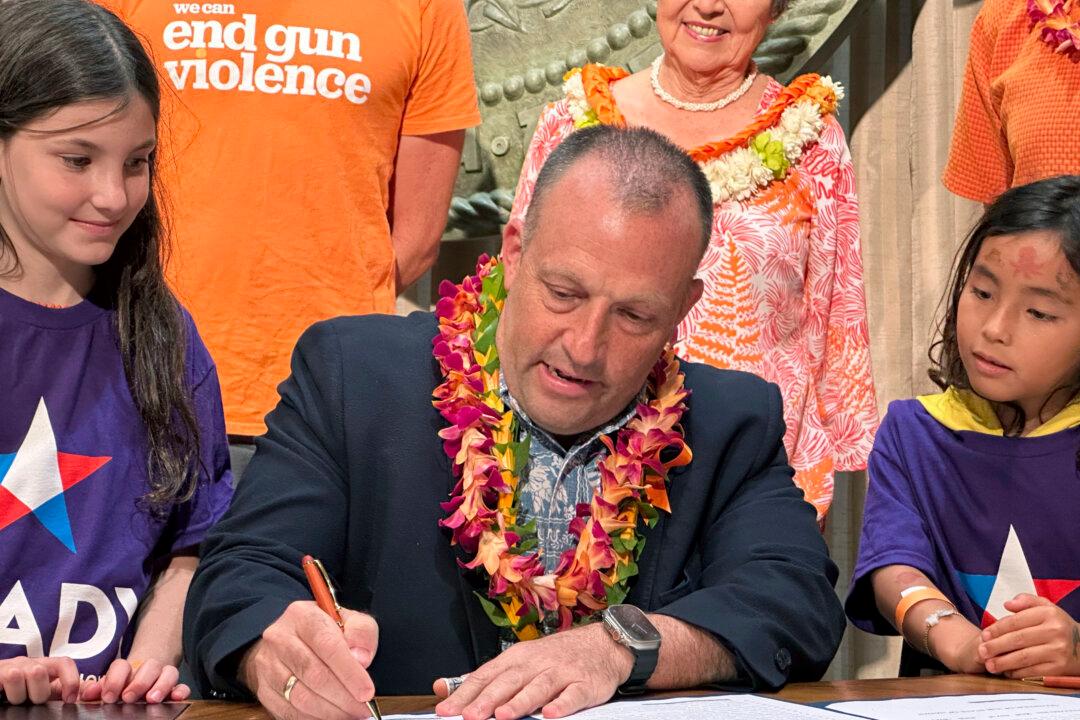Hawaii’s governor on June 2 signed a bill that prohibits carrying guns at certain places, including beaches, hospitals, and movie theaters.
The lengthy list of places at which gun possession is banned under SB1230 also includes nursing homes, restaurants that serve alcohol, and stadiums.





